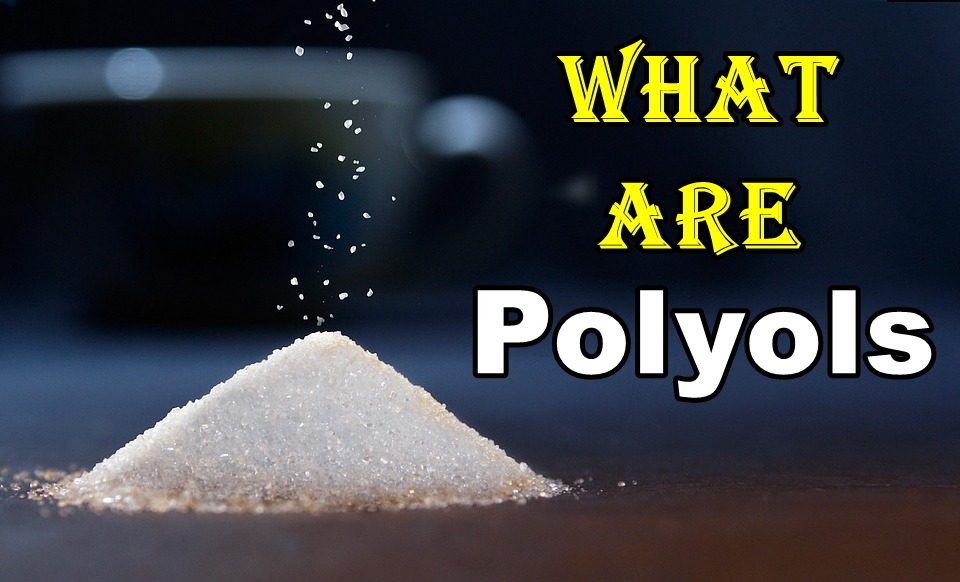With large usage in various industrial applications, the polyols market is growing at an accelerated rate. As per the latest polyol market trends, the global supply of polyols is increasing at a CAGR of 2.6% over the last five years while the production was around 3.3 MMT in 2016-17. Owing to the increased awareness regarding energy conservation, the demand for rigid foams with superior insulation properties has also increased.
This demand is a major driving force for the expansion of the global market for polyols over the forecast period. The automotive and packaging industries have also seen expansion which has also resulted in the growth of the polyols market.
What are polyols?
Polyols also known as sugar alcohols, are reduced calorie carbohydrates and are versatile in nature. They have the taste and texture of sugar but have half as many calories as sugar. They are used in both the food and polymer chemical industry.
With rising demand in various end-user industries, there is a steady growth in the polyols market. The various end-user industries include construction, automotive, electronics, furniture and interiors, footwear, and packaging.
Polyols in food
The different polyols used in the food industry include sorbitol, erythritol, isomaltose, and maltitol. With rising environmental awareness and raw material prices, manufacturers are investing in bio-based polyols.
Polyols market trends
End-use industries such as automotive, construction, paints and coatings use polyurethane foams (PU foams) extensively. It is widely used in the automobiles industry for manufacturing of wiper cowls, bumpers, side skirts, roll pans, armrests, headrests, dashboards, roll liners and instrumental panels. In the construction industries as well, PU foams are used for the formation of a layer of insulation. It also helps cover irregular shapes and provides weatherproof sealants. The polyester polyols market has grown with the increased demand for PU foams in the automotive and construction industries.
Flexible foams are also widely used in furniture, bedding & mattresses, luggage, footwear, home appliances, packaging etc. These foams exhibit high durability, energy absorption, handling strength and show enhanced thermal insulation. These are the reasons for demand from various industries. These industries are also expected to grow in the forecast period contributing further to the demand for polyols.
Elastomers have emerged as a fast-growing segment of polyols and the market is expected to grow further in the coming years. Elastomers have the combined strength of plastic and elasticity of rubber. Polyols based elastomers are used in various industries including building, construction, apparels and footwear and even furnishing and appliances. The low cost and high durability that they provide has resulted in its fast growth in the market.
Polyols market size and analysis
The supply of polyols has been increasing globally at an average annual rate of 2.5% over the last five years. The demand growth in countries like China and the USA is driven by segments like oral hygiene products and chewing gums.
Global sorbitol production is expected to register an average growth rate of 4.65% which belongs to the category of individual polyols. The market for mannitol and xylitol is expected to increase at a rate of 7% and 4.2% respectively in the years 2020-21. Due to lower production costs, sorbitol has emerged as the most popular type of polyol used globally. However, the health-related benefits offered by mannitol and xylitol help them compete against sorbitol. Between 2013 and 17, the global production of polyols has witnessed a growth rate of 8.2%. The production is further expected to rise in the forecast period.
The supply is driven by increased demand in the food and pharmaceutical industries. The demand is also driven by the easy obtainability of feedstock at cheaper rates. With rising demand from major industries, global production has witnessed a steady growth rate.
Also read,
59 percent of the total global production is dominated by sorbitol, for it is the commonly used sugar-based alcohol. It is also widely used due to its cost-effectiveness. In China, the demand from Vitamin C manufacturers is the major driving force. It accounts for 45 percent of the total usage of polyols. In the U.S. and Europe, polyols benefits for health have ensured widespread application in pharmaceutical industries.
Major growth drivers for polyols consumption include:
- With increased use in the health and pharmaceutical industries, the demand for polyols in increasing.
- With the application in the production of Vitamin C and diabetic foods, sorbitol accounts for the largest market share.
- The increased use of safety measures and demand for vehicles has also increased its usage in automotive industries further growing the polyols market.
Europe, USA, and China are the leading consumers of specific polyols i.e. Sorbitol. The top players of the market include Mitsui chemicals, Royal Dutch Cell PLC, Dow Chemicals, and Cargill Inc.
Are Polyols to safe?
Are they useful for people with diabetes?
Because these sweeteners have lower caloric values, they may help people with diabetes achieve their weight goals. Non-cariogenic throat lozenges may also be useful if a person’s medications cause dryness of the mouth.Sugar replacers (polyols) also cause smaller increases in blood glucose and insulin levels than do sugars and other carbohydrates. Therefore, snacks sweetened with them may be useful. People with diabetes should consult their physician or other health professional about the usefulness of sugar replacers (polyols) in their daily meal plan.



